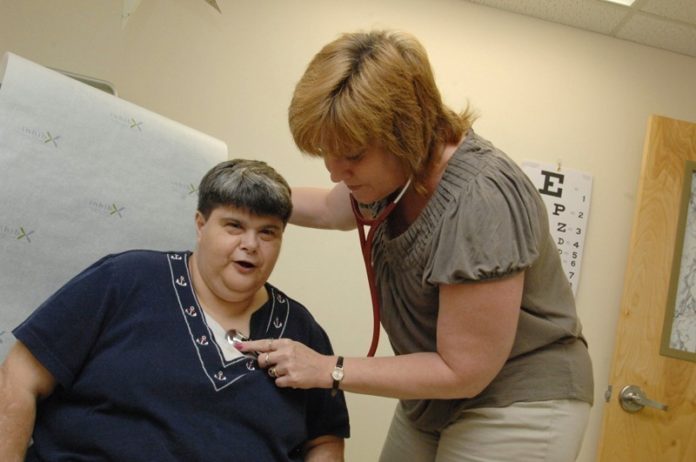
In the dry language of the health care bureaucracy, core clients of the innovative Living Rite program are called “dual eligibles.” They are the neediest patients, battling chronic diseases or disabilities, supported by both Medicare and Medicaid.
The Living Rite program’s goal is to provide comprehensive and preventive health care to its long-term care clients. This can include people with intellectual and developmental disabilities, Alzheimer’s disease, dementia or with chronic illnesses. These people are among the most costly to the health care system.
Living Rite is led by the University of Rhode Island’s College of Pharmacy and funded by a $14 million grant over a three-year period. It’s supported by the Affordable Care Act, which tasked the Centers for Medicare & Medicaid Services with testing innovative payment and service-delivery models.
The three-part aim of Living Rite is to improve health care for individuals, improve the health of the population and reduce costs per client. The project accomplishes these goals through two Living Rite centers in the state, AccessPoint RI in Cranston and Seven Hills RI in Woonsocket.
The model is based on the theory that treatment of chronic disease is so costly because most business models are set up to deal with acute, not chronic, illness. Living Rite breaks that mold by using an interdisciplinary core team that meets every week to discuss each client’s particular needs. The treatment team includes a nurse practitioner, pharmacist, a nurse coordinator, peer mentor, a life coach, social worker and certified nurse’s assistant. One of the most acute problems in this demographic of clients is management of medication.
“URI’s College of Pharmacy was one of 107 projects funded from a pool of more than 3,000 applicants. We have been told that our model is one of the most innovative of those that have been funded,” said professor Elaina Goldstein, Living Rite director.
“We have estimated that Living Rite will save the Medicare and Medicaid program of Rhode Island approximately $15 million during the three-year window by preventing illness, emergency room visits, nursing home care and hospitalizations [by] adults with cognitive challenges and people with Alzheimer’s,” said Goldstein.
Living Rite also supports the creation of an Interprofessional Health Education Center at URI. A key function of the center will be to train clinical providers on how to best care for these patients.
In addition, the centers provide training and job placement services to assist their disabled clients. Living Rite has created two new health care-related positions for people with disabilities – the life coach and peer specialist – and clients are being training for those positions. Nine people with developmental disabilities have graduated the training and five of them have landed jobs. •












